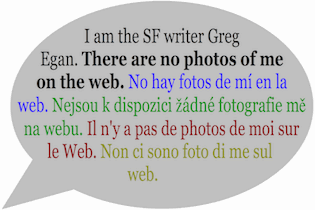A Quote by Terry Brooks
This is for writers yet to be published who think the uphill climb will never end. Keep believing. This is also for published writers grown jaded by the process. Remember how lucky you are.
Related Quotes
Way back in 1989, I got lucky with my first published story when it was selected for the Journey Prize anthology. Then I got lucky three more times. It is astounding to see how many writers published in the anthology have gone on to publish great story collections and novels. The anthology is a windfall for both writer and reader.
The writers who have been serious about recreating American literature have always been far and few between. What we do have at the end of the 20th century that we didn't have at the beginning, at that time of the Lost Generation of rich white boys, is a mixture. We're now getting gay writers of color, let's say, and women of color being published. This is unprecedented.
The fiction I've written and published is certainly inflected by the work of authors I was reading or translating at the time. One of my methods for developing my own voice in fiction, a process I am taking very slowly and deliberately, is through these very intense encounters with certain writers. Strength and power in fiction is being able to resist these intoxicating voices, recognizing that they are the signatures of other writers and not one's own.
I didn't think [Ella Enchanted] would get published. Everything I'd written till then had been rejected. If it was published, I thought it might sell a few thousand copies and go out of print. I thought if I was lucky I could write more books and get them published, too. I still pinch myself over the way things have worked out.
Writers don't want to appear to be stupid. I don't know - maybe people become writers so that they can prove that they're not. Of course getting a book published doesn't mean that they're not stupid. At a certain point you have to stop trying to prove something and write because you need to think about something and want to communicate, in a very broad sense.
I was first published in the newspaper put out by School of The Art Institute of Chicago, where I was a student. I wince to read that story nowadays, but I published it with an odd photo I'd found in a junk shop, and at least I still like the picture. I had a few things in the school paper, and then I got published in a small literary magazine. I hoped I would one day get published in The New Yorker, but I never allowed myself to actually believe it. Getting published is one of those things that feels just as good as you'd hoped it would.




































